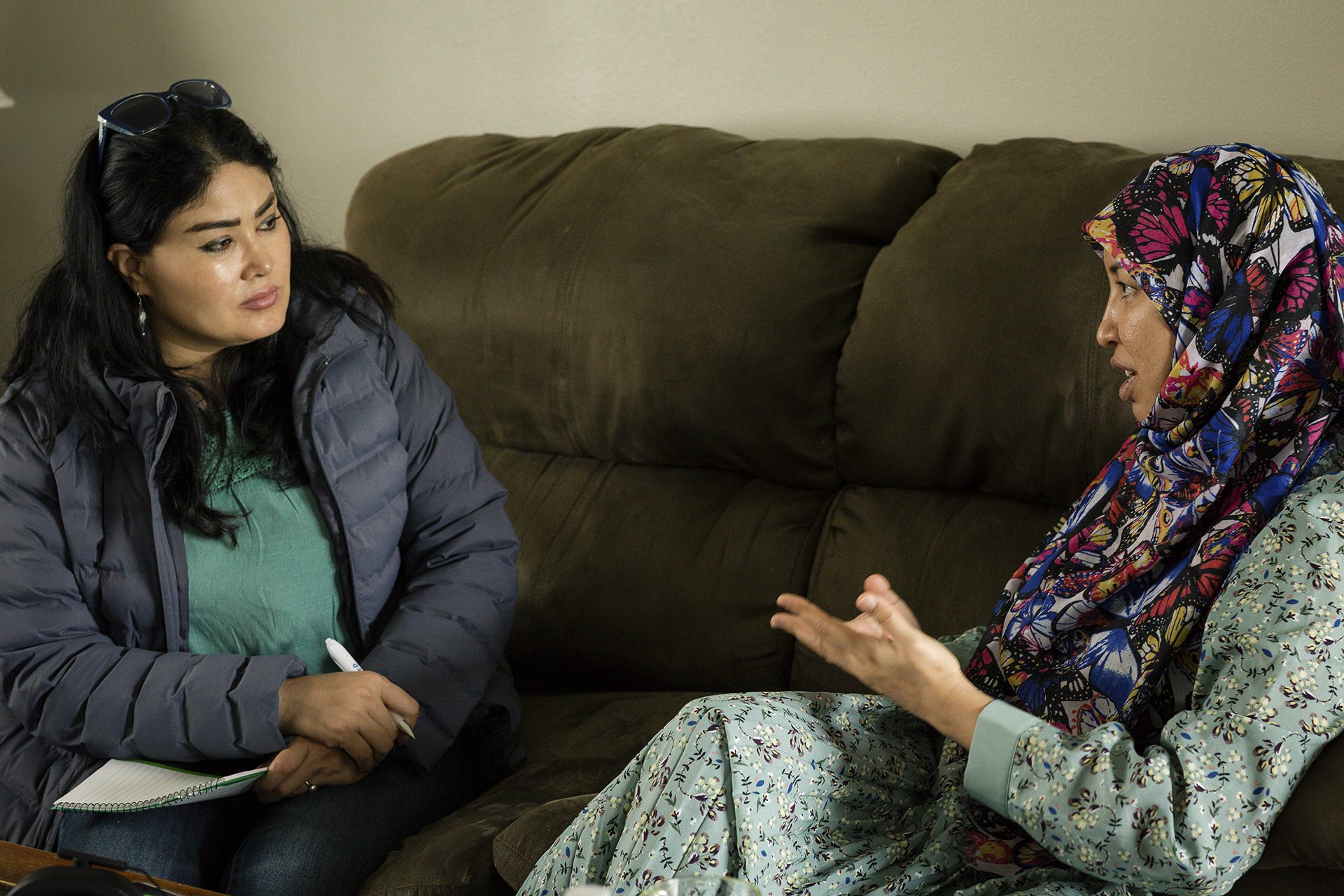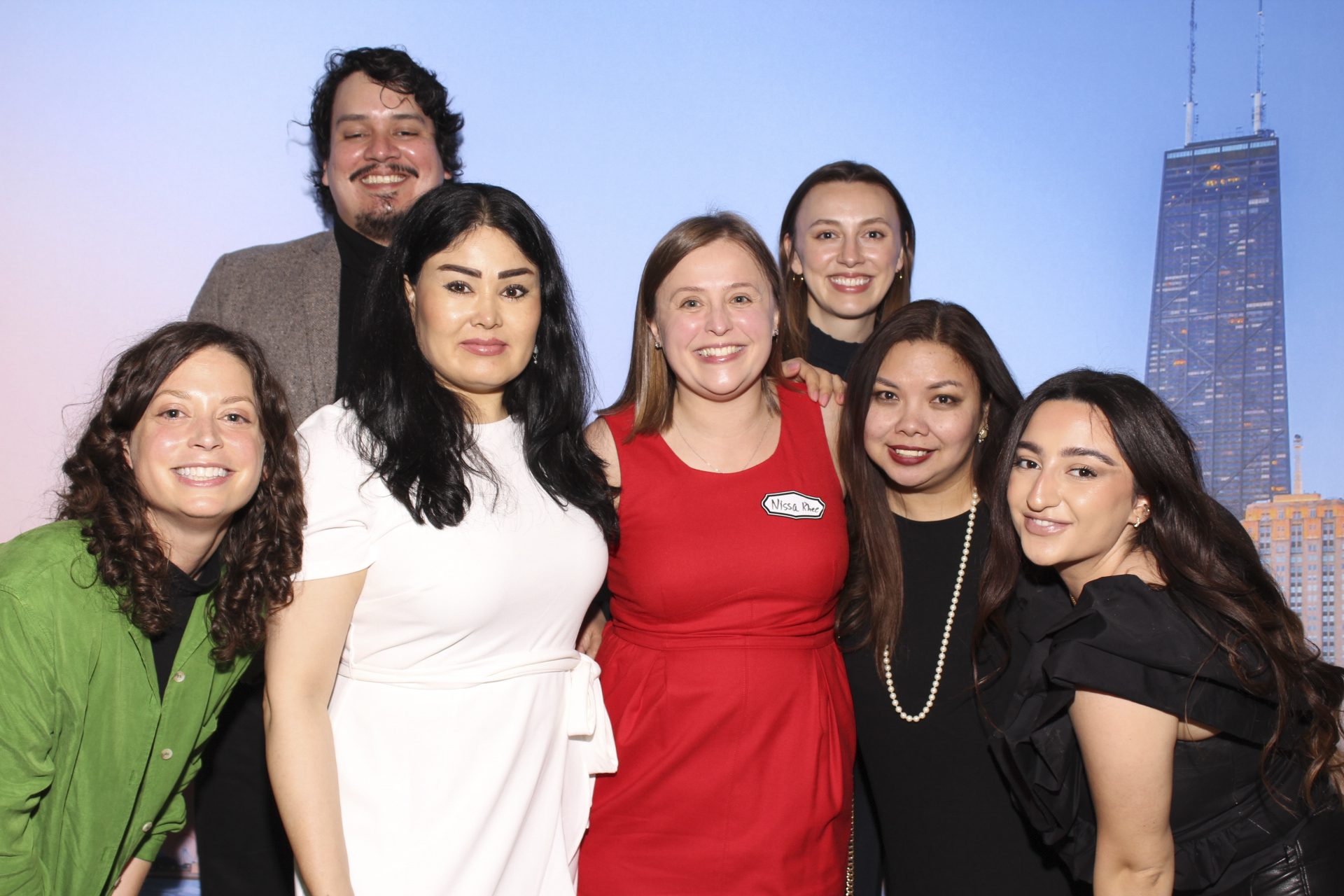 Michelle Kanaar/Revista sin fronteras
Michelle Kanaar/Revista sin fronterasTras huir de Afganistán en agosto de 2021, Saleha Soadat, becaria de Caminos sin Fronteras, reflexiona sobre su primer año en Estados Unidos.
Saleha Soadat es una de los cientos de miles de afganos que se precipitaron al aeropuerto de Kabul para huir de Afganistán después de que los talibanes tomaran el control del gobierno en agosto de 2021.
Noticias que ponen el poder en el punto de mira y a las comunidades en el centro.
Suscríbase a nuestro boletín gratuito y reciba actualizaciones dos veces por semana.
Antes de huir de Afganistán, Soadat era una galardonada periodista de radio y televisión. Cuando acabó en Chicago tras ser procesada en Fort McCoy (Wisconsin), estaba decidida a continuar su carrera periodística.
Soadat es una ferviente defensora del periodismo independiente, de la libertad de expresión y de llamar la atención sobre las injusticias, debido a su propia experiencia de vida bajo el régimen talibán.
"Mi principal responsabilidad es hacerme eco de las voces de la gente y compartir sus historias con el mundo", afirmó Soadat.

Como becario de la revista Borderless Magazine, Soadat compartió las historias de sus compatriotas afganos que viven en el exilio en Estados Unidos, entre ellos antiguos legisladores afganos y una gobernadora de distrito que luchó contra los talibanes junto a las fuerzas de seguridad nacionales. También ha traducido artículos al persa dari para que los afganos puedan acceder a nuestros reportajes.
Este otoño, Soadat empezará una nueva etapa en la Universidad Estatal de Texas, donde cursará un máster en comunicación de masas. Habló con Borderless sobre sus objetivos, logros y dificultades en su primer año en Estados Unidos.
El año pasado por estas fechas, te viste obligada a huir sola de Afganistán y dejar atrás todo lo que conocías. Un año después, te has convertido en reportera en Estados Unidos y vas a estudiar un posgrado en Texas. ¿Cómo ha sido este último año?
El viaje fue muy duro. Lo perdí todo: mi casa, mi familia, mi país, todo. Dos meses después de salir de Fort McCoy, en Wisconsin, vine a Westmont, en Illinois.
Fue muy difícil para mí. No tenía contactos ni redes, no conocía a nadie. No me comunico fácilmente con la gente. Todo era totalmente nuevo para mí, fue duro y un largo viaje. Pensé, ¿por dónde empiezo? En la primera semana aquí me saqué el carné de la biblioteca y cada día buscaba en Google. Encontré una biblioteca que daba clases de ESL y me inscribí. En Afganistán nunca había hablado inglés, pero aquí estaba aprendiendo. Me matriculé en las clases e hice buenos amigos.
Es muy difícil recuperarse, empezar de cero. Pero creo que tengo mucha suerte.
Más información
Conseguí dos becas, una de la Universidad de Georgetown y otra de la International Women's Media Foundation. También me enteré de Borderless y me hizo mucha ilusión. Tuve una reunión con Nissa y Michelle, los cofundadores de Borderlessde una redacción en Estados Unidos.
El año pasado conseguí muchos logros y entré en la Universidad Estatal de Texas. Tengo previsto hacer un máster en comunicación de masas. Fui periodista en Afganistán, me encantó y me gustaría seguir mejorando.
Después de informar sobre las comunidades afganas en Estados Unidos, ¿cuáles son los principales retos que ha observado?
El mayor problema es el proceso de inmigración y el futuro desconocido de los afganos aquí. No es sólo en Chicago. Conocí a refugiados afganos en Washington, D.C., Maryland y Virginia que tienen los mismos problemas y un futuro incierto. La mayoría de ellos tienen una barrera lingüística, por lo que no pueden encontrar ayuda y están socialmente aislados. También carecen de confianza y deben apoyarse unos en otros.
Quiero compartir sus historias con el mundo. ¿Por qué son refugiados? ¿Por qué vinieron? ¿Por qué abandonaron sus países? ¿Qué tipo de dolores o sentimientos experimentan?
Más información
¿Cómo ha sido trabajar con Borderless Magazine?
Fue una oportunidad de oro para mí. Cuando estaba en Afganistán, escribía en persa. Ahora puedo escribir en inglés. Aprendí a usar Slack y Google Docs. Día a día mejoro en inglés, y ahora tengo un público internacional gracias a ello.
Gente de todo el mundo lee mis artículos, comenta y se pone en contacto conmigo sobre lo que publico en Borderless. Hace poco me contactó National Geographic y tuve una reunión con ellos. Están muy interesados en entrevistarme e incluirme en un documental sobre mujeres periodistas activistas de Afganistán, como yo. Ahora siento que avanzo hacia la profesión de periodista internacional.
Lea más reportajes de Saleha para nuestra serie, Pájaros de alas rotas: Afganos en el exilio. Su reportaje ha sido posible gracias al apoyo de Crossroads Fund y PEN America.

